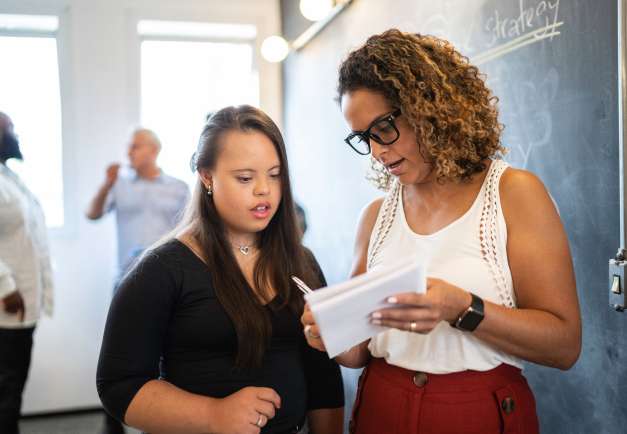I don’t know if my student has a Transition plan.
Talk with your student’s case manager and request a meeting to talk about your student’s Transition plan. Contact DRM and speak with an advocate.
I don’t know if my student is receiving services from MRS/BSBP?
Talk with your student’s case manager and formally request the district include MRS/BSBP services. You can also formally request services from MRS/BSBP on your own by contacting them yourself. Contact DRM and speak with an advocate for help on how to do this.
My student will be graduating soon, and the school has not discussed Transition services.
Talk with your student’s case manager and formally request an IEP meeting to discuss Transition services. Contact DRM and speak with an advocate.
My student will be receiving a Certificate of Completion and is 18. The school has not talked with us about what will happen next.
Talk with your student’s case manager and formally request an IEP meeting to discuss Transition services. Contact DRM and speak with an advocate.
My student will be receiving a diploma and MRS attended the last IEP meeting, but I am not sure what services will be provided and what the next steps are?
Talk with your student’s case manager and ask for the contact information of the MRS/BSBP counselor that attended the meeting. Contact DRM and speak with an advocate.
My student would like to participate in a work experience this summer, but we have no information about what is available?
Talk with your student’s case manager and request a meeting with MRS/BSBP to discuss what is available. Contact DRM and speak with an advocate.
I have not been asked to sign a consent form to invite an outside agency.
Talk with your student’s case manager and formally request that MRS/BSBP be invited to the IEP meeting and request a consent form be provided. Contact DRM and speak with an advocate.
MRS/BSBP has not been involved in my student’s Transition meetings.
Talk with your student’s case manager and formally request that MRS/BSBP be invited to the meetings and request a consent form be provided. Contact DRM and speak with an advocate.






